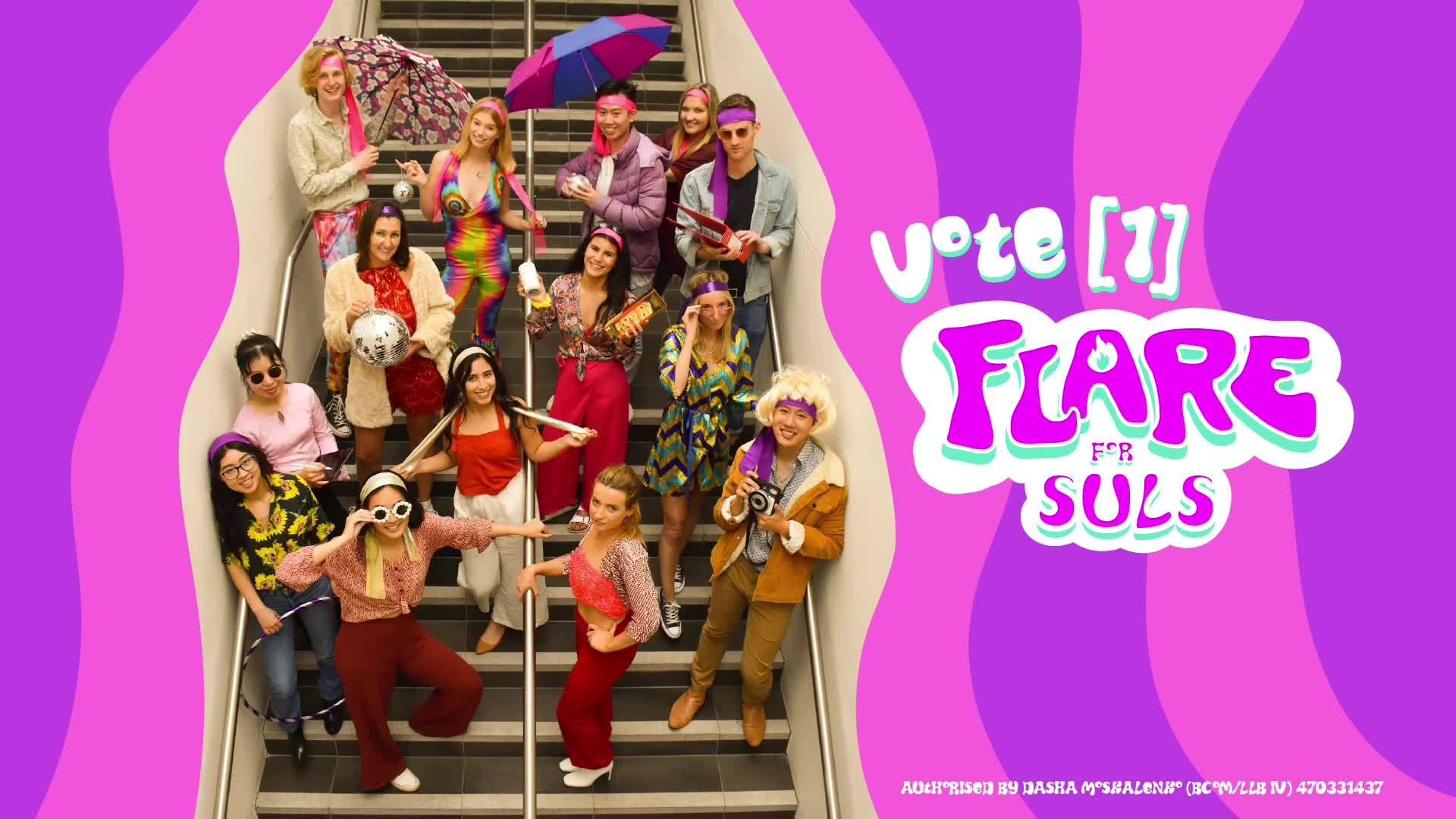Disclaimer: Daany Saaed managed Zest for SULS in 2019. Several former members of Zest are on Flare for SULS.
Flare has won the first three-way race for control of the Sydney University Law Society (SULS) in recent memory, in an incredibly narrow victory An exceptionally close first round count was forced well into an unprecedented third day as Electoral Officer Calida Tang verified the eligibility of first year voters manually with the Law School. This was extended due to incorrect initial data from the Law School — a result of human error in matching SIDs to student email addresses.
On first count, Vibe and Splash both received 315 votes, with Flare receiving 332. Using an online random number generator, Vibe was eliminated. With Vibe’s preferences distributed, Flare led Splash 457-439. Even if Splash was eliminated at first count and their preferences distributed, Flare would still have won, with Splash’s preferences giving Flare a lead over Vibe, 459-449.
These are final numbers, and have been confirmed by the Returning Officer without a provisional declaration owing to the closeness of the race.
The result sees popular Commerce / Law student Wendy Hu take control of the Presidency, alongside Women’s Officer Sinem Kirk (VP Education), Sophia Semmler (VP Social Justice) and JD student Cameron Jordan (VP Careers). Flare focused on the experience and capacity of their ticket to be able to implement their policy platform, which was criticised for being altogether safer than other tickets. Flare made significant emphasis however, of their ticket being the only one with experience on the Executive both before and after the coronavirus pandemic struck. Flare for SULS recruited with some degree of political diversity, with both Alison Chen (Secretary) and Sinem Kirk (VP Education) having previously run or campaigned on Pop, despite Hu and campaign manager Dasha Moskalenko being involved in the opposing ticket, Zest for SULS.
The election, whilst online, was not devoid of controversy, with friendship groups straining and couples dating across tickets. This came to a head just before voting, when campaign responses to an Honi analysis on Sunday saw significant division between the cliques of the law school, with the old guard backing Flare and the current in-group backing Splash. On Tuesday, former Pop for SULS campaign manager Jeffrey Khoo, claiming impartiality (though the comment happened to be stacked by several Splash for SULS members and supporters), took particular issue with the wording of a Flare post referring to “unfulfilled campaign promises” and “resume boosts”, leading to some buzzword-heavy essays in the replies. Spicy.
There was relatively little antagonism between tickets otherwise in the public sphere, which was strange given the heated nature of the criticisms members from all tickets raised behind closed doors. This reluctance to air their grievances and fight it out in the marketplace of ideas is certainly a departure from most stupol campaigns – indicating a preference from campaigns to rely on social networks to win votes over policy, a successful formula in years past, and one that was criticised in a USyd Rant that begged ‘at least PRETEND to tell me how this new exec would change my law school experience for the better’. Indeed, the anonymous forum of USyd Rants was flooded after the election with obviously partisan content targeting Splash.
Shortly after voting closed, Rants was inundated with submissions about Splash’s use of the slogan “Close the Gap” to refer to their flagship policy of unifying the law school experience for Juris Doctor students and undergraduates alike. Close the Gap is a social justice campaign focused on Indigenous health outcomes, which are significantly worse than national averages. The Federal Government adopted the goals of Close the Gap in 2008, and has produced an annual Closing the Gap report to Parliament every year since 2010. Splash’s use of “Close the Gap” as a slogan was criticised as “insensitively appropriated” and “culturally offensive”.
Certainly, any outright drama paled in comparison to 2019, when newly-minted SRC patron Abbey Shi, running for the International Student Officer position, removed members of Zest from a WeChat group comprising international students, as well as there being an ongoing debate over the relationship of eventual winner Amer Nasr to the Liberal Party. Public stoushes between tickets last year were not infrequent, with the Presidential candidates reportedly coming to a fully-blown shouting match in the Law School Annex at one point. The reluctance of all tickets to engage with each other substantively (and not anonymously) on policy, even with multiple debates, is certainly a departure from student politics in general, and is sure to frustrate students expecting somewhat more transparency from their Law Society executives.
Whilst the race was difficult to call given the novelty of online student elections, Flare were expected to win a stronger share of the primary vote, indicated by the mutual preference deal between Vibe and Splash. Their campaign presence was boosted by the experience of PR consultant Georgia Watson as their Socials Director candidate.
The vote count running into a third day is unheard of in recent memory, and surely the Society will be keen to return to traditional elections as soon as possible.
Next year’s Executives inherit cash reserves of almost $300,000 and an operating surplus of $45,000, making the Law Society the largest on campus. Hu and Flare have promised an enhancement of current student mentoring programs, meaningful online social events, and stronger advocacy.
This article was updated after time of publication to include the vote count.





